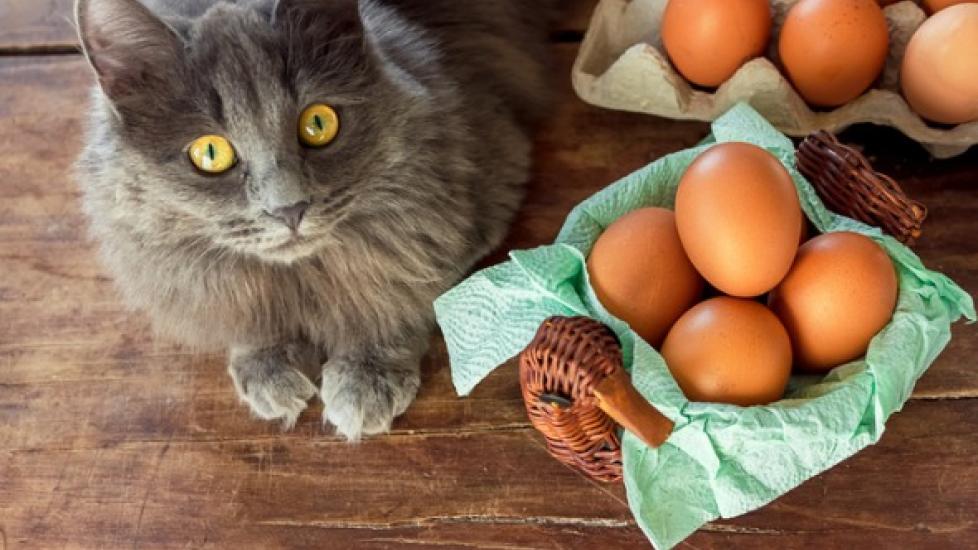Can Cats Eat Eggs?
When you think about foods that cats love, eggs might not come to mind. Since they’re healthy for us, are they good for our feline friends, too?
Can cats eat eggs? Here are some benefits and risks of feeding your cat eggs.
Are Eggs Good for Cats?
Eggs are good sources of protein and fat, and cats are obligate carnivores, meaning they eat a diet of mostly animal protein. Eggs aren’t recommended as the sole dietary source of protein for your cat, but cats can eat eggs to supplement the protein in the rest of their diet.
Egg whites contain protein without fat. Egg yolks, on the other hand, contain mostly fat with some protein. So take note that feeding your cat egg yolks will increase the fat content of their diet.
Eggshells contain calcium and other minerals but tend to be less palatable (aka tasty) for your feline friend. Supplementing minerals in your cat’s diet should only be done under the direction of a veterinarian.
Can Cats Eat Cooked Eggs?
Cats can eat scrambled eggs or boiled eggs with no salt or seasonings. But there is a risk of adding too much fat to your cat’s diet. Before giving your cat eggs, consult with your veterinarian.
Scrambled eggs or boiled eggs that contain egg yolks have an increased fat content, which increases the calorie content, which raises your cat’s risk of obesity. In addition, fatty meals can cause gastrointestinal (GI) upset and pancreatitis.
Feeding only egg whites that are either boiled or scrambled will reduce these risks. Egg whites contain almost no fats, making them the better source of protein for your cat.
Are Raw Eggs Good for Cats?
While I personally prefer my eggs over easy, feeding raw eggs or raw egg whites to cats carries risks.
According to the Centers for Disease Control, ingesting raw eggs or raw egg whites increases the risk of getting infected with a bacteria called salmonella. Salmonella can infect both pet parents and their cats. It can cause GI symptoms such as vomiting and diarrhea.
Salmonella infects 1.35 million people in the United States every year and does carry a risk of hospitalization and death in humans. In general, feeding raw eggs will increase the risk of exposing you, your family, and your pets to harmful bacteria. It is much safer to feed your cat eggs that are cooked to an internal temperature of 160°F.
Can Kittens Eat Eggs?
Kittens can also eat scrambled eggs or boiled eggs, in small amounts. Eggs should not be a kitten’s sole source of food. Kittens need a complete, formulated diet to make sure they have all the nutrients required to grow. Consult with your veterinarian prior to feeding eggs to your kitten.
How Much Egg Can a Cat Eat?
Feeding small amounts (about 1 tablespoon) of egg whites in addition to your cat’s normal diet can help supplement the amount of protein they are eating.
However, cats tend to need less food than we think, and they are generally good at turning extra calories into fat or extra pounds. It is important that cats are fed a completely balanced diet. Before adding eggs to your cat’s diet, consult with your veterinarian.
Cats are also susceptible to developing disease secondary to nutritional deficiencies, such as cardiac disease. If you are considering feeding your cat a home-cooked diet, consult with a veterinary nutritionist who can help you formulate a balanced diet.
What’s the Best Way to Give Your Cat Eggs?
Egg whites should be cooked (boiled or scrambled) without salt or seasonings. Ensure that the eggs are cooked to an internal temperature of 160°F. Let the eggs cool, then add a small amount to the top of your cat’s normal food.
Featured Image: iStock.com/Anatoliy Sizov
